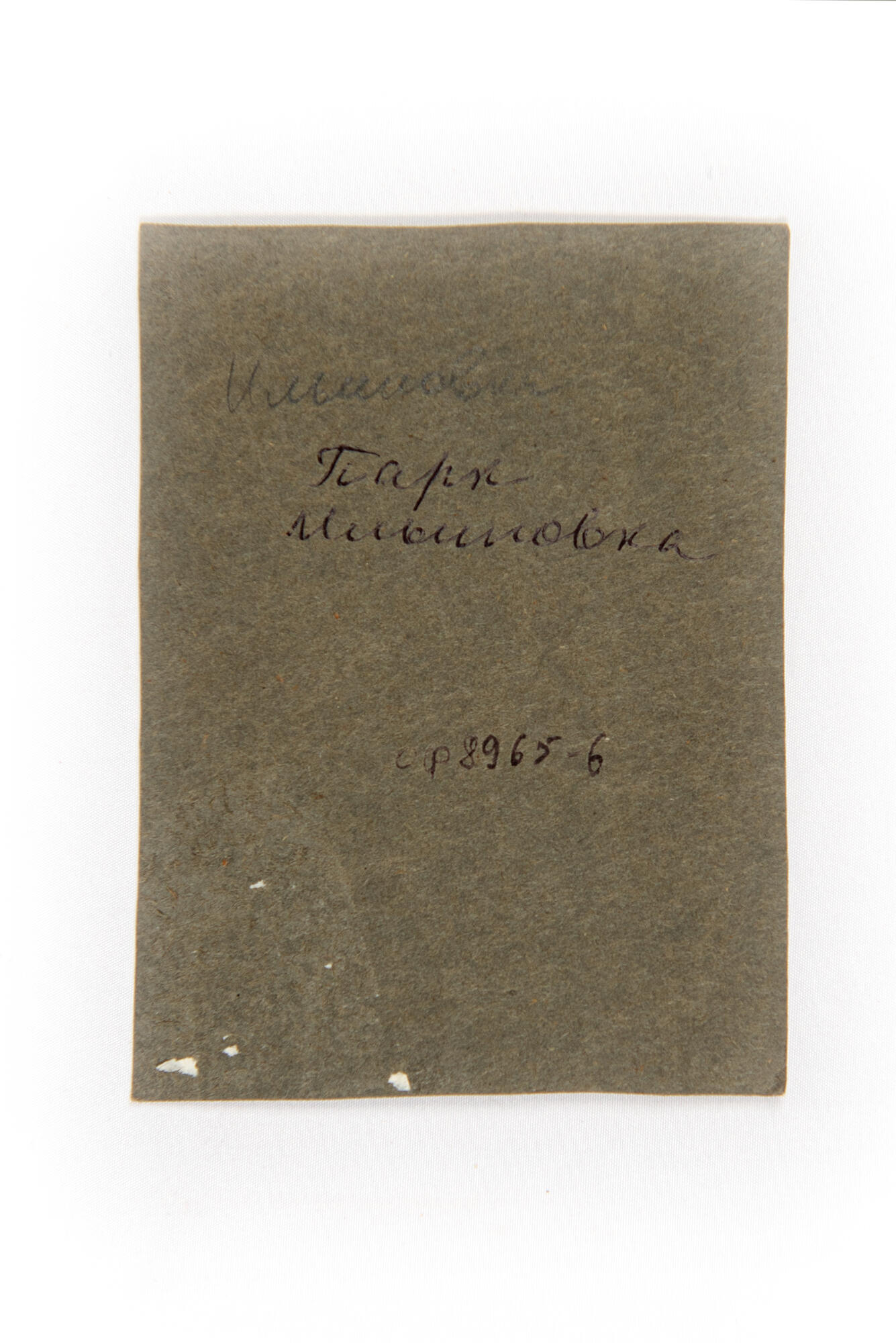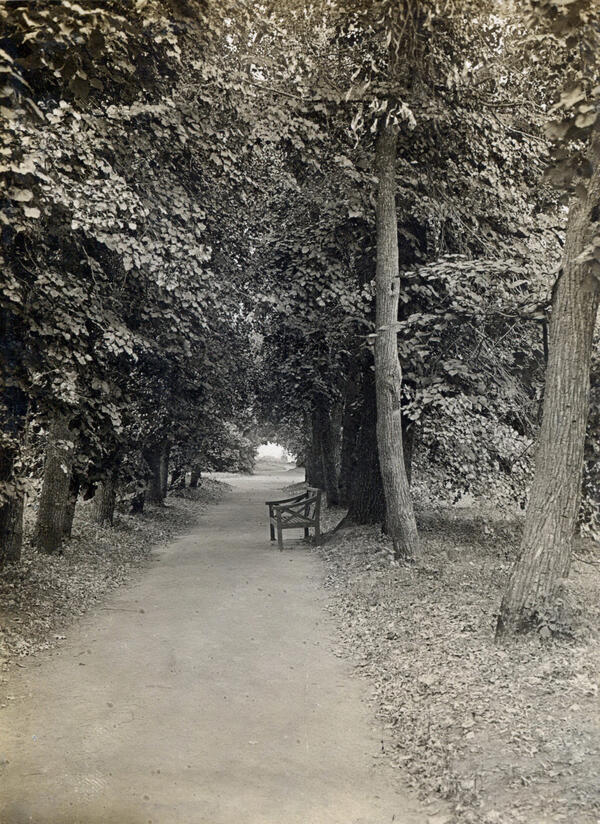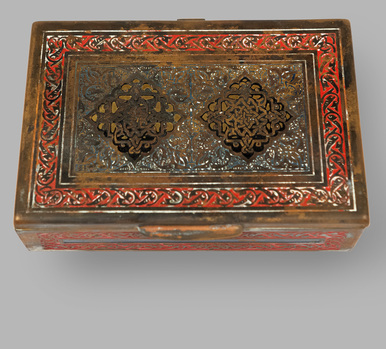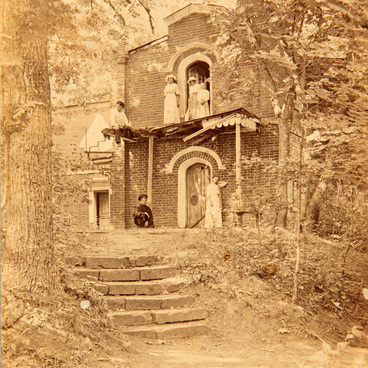In the second half of the 19th century and the early 20th century, the trend towards replacing purely decorative respectable parks with so-called kitchen gardens, which served economic purposes but also included some decorative elements that were used for recreation, became increasingly evident in manor park landscapes. Such a turn in garden art meant a return to the ancient Russian tradition of combining the utilitarian functions of a vegetable garden with artistic ones.
The park in Ilyinovka was embellished with numerous gazebos and romantic walkways. Alleys ran through the park, with the main one starting at the facade of the house. A usable area was allocated for seasonal vegetables, an apiary, and an “apothecary garden” — a small plot where medicinal herbs were planted.
The history of Ilyinovka, which dates back to the late 18th century, is linked to the poet Yevgeny Boratynsky and his closest relatives. In 1796, when Emperor Paul I ascended the throne, he bestowed awards and gifts on his courtiers, including the Boratynsky brothers: Abram Andreevich (the poet’s father) and Bogdan Andreevich. They were granted “the village of Vyazhly and 2,000 peasants from the palace settlements of Tambov Governorate, Kirsanov District”.
Originally, Vyazhly was the name of the entire vast estate of the Boratynskys. Their lands were located in the valley of the Vyazhly river and included a number of small settlements.
Some of them were later named after their Boratynsky owners: Marjinka, Sofyinka, Varvarinka, Natalinka, Ilyinovka, Sergievka. Others retained their original names: Derben, Kozlovka, Osinovka, Vyazhlya, Yadrovka (the poet’s hereditary fiefdom). There is reason to believe that it was in Ilyinovka where A. Boratynsky’s firstborn son Yevgeny was born in 1800.
It was not until 1805 that he and his family moved five versts away to a new manor house called Mara, later celebrated in his poems. Throughout the 19th century, the inhabitants of Ilyinovka were linked to Mara by kinship and friendship. The Kirsanov Local History Museum has preserved several photographs of the estate. All of them are connected with later time when Mikhail Andreevich Boratynsky, the poet’s nephew, lived in the estate. Mikhail Andreevich was fond of photography, and in 1912 he took part in an international photo exhibition. It is thanks to him that a photographic chronicle of the Ilyinovka estate has been preserved.
The park in Ilyinovka was embellished with numerous gazebos and romantic walkways. Alleys ran through the park, with the main one starting at the facade of the house. A usable area was allocated for seasonal vegetables, an apiary, and an “apothecary garden” — a small plot where medicinal herbs were planted.
The history of Ilyinovka, which dates back to the late 18th century, is linked to the poet Yevgeny Boratynsky and his closest relatives. In 1796, when Emperor Paul I ascended the throne, he bestowed awards and gifts on his courtiers, including the Boratynsky brothers: Abram Andreevich (the poet’s father) and Bogdan Andreevich. They were granted “the village of Vyazhly and 2,000 peasants from the palace settlements of Tambov Governorate, Kirsanov District”.
Originally, Vyazhly was the name of the entire vast estate of the Boratynskys. Their lands were located in the valley of the Vyazhly river and included a number of small settlements.
Some of them were later named after their Boratynsky owners: Marjinka, Sofyinka, Varvarinka, Natalinka, Ilyinovka, Sergievka. Others retained their original names: Derben, Kozlovka, Osinovka, Vyazhlya, Yadrovka (the poet’s hereditary fiefdom). There is reason to believe that it was in Ilyinovka where A. Boratynsky’s firstborn son Yevgeny was born in 1800.
It was not until 1805 that he and his family moved five versts away to a new manor house called Mara, later celebrated in his poems. Throughout the 19th century, the inhabitants of Ilyinovka were linked to Mara by kinship and friendship. The Kirsanov Local History Museum has preserved several photographs of the estate. All of them are connected with later time when Mikhail Andreevich Boratynsky, the poet’s nephew, lived in the estate. Mikhail Andreevich was fond of photography, and in 1912 he took part in an international photo exhibition. It is thanks to him that a photographic chronicle of the Ilyinovka estate has been preserved.




